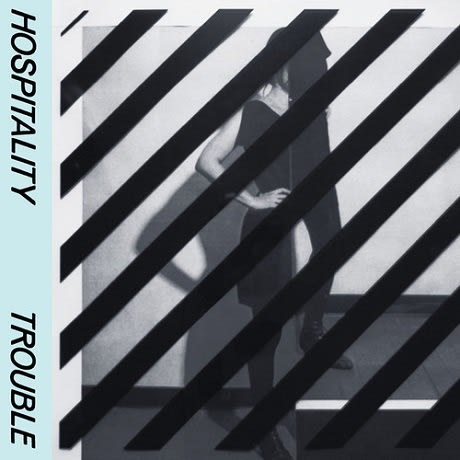For Hospitality's 2012 self-titled debut, the Brooklyn trio delivered a playful collection of sugary indie pop, evoking everyone from Belle and Sebastian and Björk to 1960s girl groups. Trouble shares its predecessor's assuredness, yet lacks its cohesion.
This time, the combo shies away from big hooks — don't expect "Betty Wang" or "Friends of Friends" 2.0 — instead trying on a range of new guises that are strong in isolation, but struggle to fit together. "Nightingale" is a haunted bedtime tale fleshed out with muscular guitar and punctuated by rhythmic fits and starts. Conversely, "Sunship" is a vaguely baroque number (blame the woodwind), while "Call Me After" is a stripped-down acoustic cut.
Throughout, the three-piece deftly control mood, whether they're creating a Notwist-style afternoon ramble ("Going Out"), new-wave paranoia with a dash of Gowan ("Last Words"), or resigned melancholy (standout "Inauguration"). What Trouble lacks in focus, it largely makes up for with ambition and dexterity.
(Merge Records)This time, the combo shies away from big hooks — don't expect "Betty Wang" or "Friends of Friends" 2.0 — instead trying on a range of new guises that are strong in isolation, but struggle to fit together. "Nightingale" is a haunted bedtime tale fleshed out with muscular guitar and punctuated by rhythmic fits and starts. Conversely, "Sunship" is a vaguely baroque number (blame the woodwind), while "Call Me After" is a stripped-down acoustic cut.
Throughout, the three-piece deftly control mood, whether they're creating a Notwist-style afternoon ramble ("Going Out"), new-wave paranoia with a dash of Gowan ("Last Words"), or resigned melancholy (standout "Inauguration"). What Trouble lacks in focus, it largely makes up for with ambition and dexterity.
